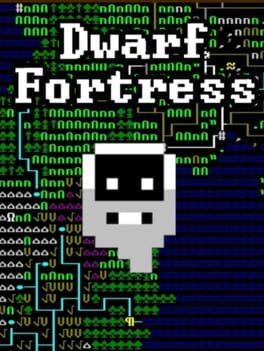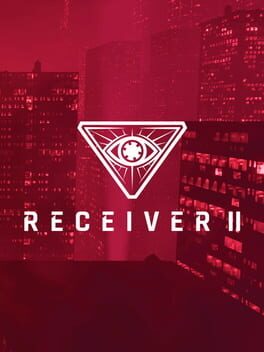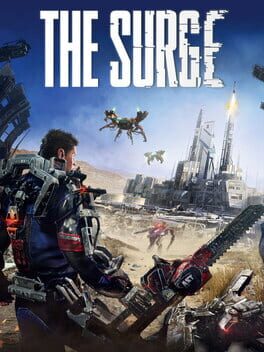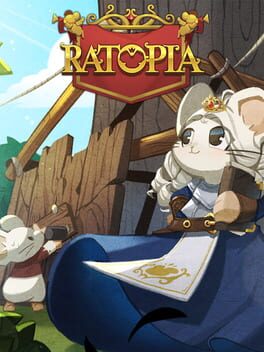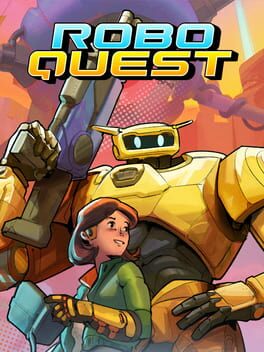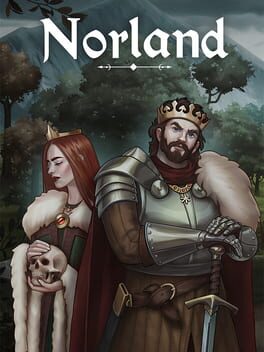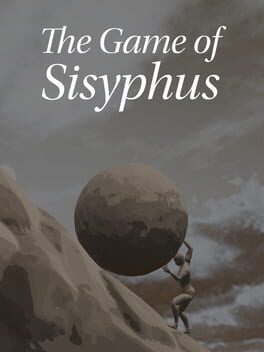jobosno
BACKER
strong, online, intellectual, attractive, genius. addicted to success
he/him
jobosno on discord
Badges

Replay '14
Participated in the 2014 Replay Event

GOTY '23
Participated in the 2023 Game of the Year Event

Organized
Created a list folder with 5+ lists

Pinged
Mentioned by another user

Early Access
Submitted feedback for a beta feature

Epic Gamer
Played 1000+ games

Famous
Gained 100+ followers

Treasured
Gained 750+ total review likes

GOTY '22
Participated in the 2022 Game of the Year Event

Listed
Created 10+ public lists

Gone Gold
Received 5+ likes on a review while featured on the front page

Best Friends
Become mutual friends with at least 3 others

Busy Day
Journaled 5+ games in a single day

Shreked
Found the secret ogre page

Adored
Gained 300+ total review likes

Roadtrip
Voted for at least 3 features on the roadmap

Donor
Liked 50+ reviews / lists

3 Years of Service
Being part of the Backloggd community for 3 years

GOTY '21
Participated in the 2021 Game of the Year Event

Trend Setter
Gained 50+ followers

Well Written
Gained 10+ likes on a single review

Loved
Gained 100+ total review likes

Popular
Gained 15+ followers

GOTY '20
Participated in the 2020 Game of the Year Event

Elite Gamer
Played 500+ games

Gamer
Played 250+ games

N00b
Played 100+ games

Noticed
Gained 3+ followers

Liked
Gained 10+ total review likes
Favorite Games
1495
Total Games Played
002
Played in 2024
072
Games Backloggd
Recently Played See More
Recently Reviewed See More
Despite its visual presentation skewing closer to Rimworld, the gameplay you're getting is more Ratopia than anything else, asking you to juggle survival, morale, and a primitive economy to create a healthy medieval ecosystem. The attention each lord requires keeps the player busy even if you're only managing 2-3 of them, and the existence of a larger, uncontrollable peasant class makes the game feel sufficiently populated without turning the whole affair into a micromanagement nightmare. The latter do a lot of the heavy lifting in making your settlement feel like a proper community as you watch them filter through the rest of the settlement to meet their own emotional and economic needs once the workday is over. In a move that logically follows but is surprisingly rare in these games, the peasants are very relevant to the wellbeing of your settlement - even in small groups - and it means that players must always be ready to dedicate some attention to placating them.
All this being said, I have a hard time mustering up the enthusiasm to play this thing. I'm not too crazy about combat in any game of this sort and creating/equipping squads in this game is a chore, and not a fun one. There is "depth" in that this system lets you click a lot of things, but it never feels like you're making meaningful decisions. In some ways it's a victim of the decision to relegate the peasants to the background for so much of the experience, as evidenced by the fact that the very similar squad-building mechanics in Dwarf Fortress can feel much more meaningful since each colonist has the texture of a "real person" for the entire game: in DF you can go out of your way to form squads solely comprising elvish warrior poets, or monster hybrids, or former soapmakers, and in Norland I don't feel like picking and equipping people for my squad has the same importance to it.
I also feel like the aesthetic similarities to Rimworld create expectations about its priorities, and Norland focuses a bit more on interpersonal relationships/medieval statecraft than it does the city-builder elements. This focus is especially felt in the early game when you've only got a few buildings unlocked and are likely to really feel the absence of one of your lords as you send them to go hunting off-screen with a neighboring ruler - an act which effectively obliterates that character until they return. The amount of lords you have gates the amount of building that you can do, since each productive building needs to be issued orders by a lord every couple days. This requirement starts to feel punitive as your lords will be stretched thin with other tasks (which they will ignore in favor of doing sweet fuck-all, but they're nobility after all), so if your favorite part of these games is all the stuff you get to plan and build upon starting a new game then you may not be happy with how much restraint you have to show with this one.
Lastly, despite the fact that the game revolves pretty heavily around the lords and their ability to slot things into their schedule, managing them can get really tedious depending on how much you care about their mood. Managing their emotional state (especially as it pertains to relationships) can require a lot of player action if you get unlucky, and it's not a terribly interesting thing to engage in as a player. The economic and management side of the game gives you elements you have to consider when assigning managers and making similar choices, but if you're sending your nobles off to improve their relationship then you're essentially just pressing a button to make a bar go up when it gets too low, because there's not much to think about when picking an outing and not much in the way of feedback for taking that kind of action.
I think Norland has some really solid selling points despite being an early access game, but in order for those elements to truly shine the developer needs to be willing to revisit existing systems instead of simply building on top of what's here. So much of the game is currently filtered through the lords that they alone are going to require tremendous scrutiny any time part of the game changes. Most of the negative reviews on Steam at the moment mention the lords, because it's very easy to hit the cap of 5 and they're not very capable of generating the kind of stories you would expect from a game that places so much focus on such a small group of them. I feel like I say that "there's potential" in all my reviews of Early Access titles, but in Norland it feels undeniable - it's good at simulating a small feudal community and its class structure, it has unique management and economic systems for a game in its genre, and with some tuning the combat and diplomacy could become best-in-class for a colony sim. I've spoken harshly, but there are no fundamental flaws. It's just not there yet. And while I'm a skeptic at heart and am fully expecting to have the same criticisms when this game hits 1.0, I'd love it if my grumpy ass is writing a review for some other game a couple years from now, telling people that "I'd rather be playing Norland instead".
This review contains spoilers
What I don't understand is how THIS is the punched-up version of the Hollows, the tile-based exploration mechanic that forms the connective tissue of most missions. Credit where credit's due: Even in the early hours of the game, Hoyo is constantly trying out new twists to keep this part of the game fresh, and I think it does work in the sense that it renews my interest. However, my interest in engaging with this (system? minigame?) was never that high to begin with, and after all the tricks I've seen them pull with this I'm still firmly in the camp of "I'd rather just be fighting". It's harder to gauge the dramatic temperature of some of these encounters when everything's abstracted down to moving icons of Hoyo-brand Rabbids during the buildup.
The snoozefest exploration mechanics are especially jarring in contrast to the cutscenes. ZZZ uses different styles of cutscenes - from comic book panelling to fully animated 3D models - to tell its story, and after god-knows-how-many hours I'm still being caught off guard by how expressive some of the animation is. Belle alone possesses such energy in cutscenes that 90% of Hoyo's previous characters look like mannequins in comparison. It helps sell the idea that these are different characters, not just different outfits - a low bar to clear, to be sure, but this is something Hoyo really seems to struggle with in their other games and I hope they can keep it up as they drop new characters for ZZZ.
The combat animations are just as good, for the record. So good that I think they're carrying this portion of the game on their back. ZZZ's combat can look really flashy but a lot of my excitement came from soaking in the effects that cover the screen when... well, when you do basically anything. Most striking are the mechanics that swap characters, either to add some additional damage to a combo or to parry an enemy's attack, skidding away from the source of the attack only to lunge back at them with an attack from the new character. They've attempted to add some depth to their classic two-skill setup by giving each character an empowered special attack, but I don't think it succeeds at creating that depth based on my progress so far. Supportive characters seem to suffer the most at this point, with most of them having one button (out of three!) that you can basically ignore. The characters can still differentiate themselves with how you mix special moves into the flow of combat, but I'm skeptical that this will be enough going forward. Combat at the moment is mostly left-clicks with a special move tossed in there periodically (timing dependent on the character) so I'm hoping that they find some way to really break this system open and create some mechanically unique characters as time goes on.
I'm running out of steam on this one, so I'm moving to bullet points for these last few - I either don't have a lot to say about these or I think breaking it down would be a waste of your time, so let's keep them short-ish:
- Combat tuning: I've revised my opinion on this since the first draft of the review - I think it's deeper than many people give it credit for, but that's not to say that it's immune to criticism. You definitely need to understand the game's systems to clear some of the more challenging, timed missions, leading to situations where not considering your chain attack rotation can be the difference between success and failure. I still think I'd like it more if combat weren't so dependent on stunning an enemy (provides a damage boost) and then wailing on them while they stand there, but generally speaking the DPS units that are available right now have some mechanical considerations that give you something to pay attention to even if the enemy isn't hitting back at that very moment
- I like the smaller hub area. This is a sore spot for some people since this apparently is very Persona-ish but as someone who has played very, very little Persona I actually enjoy this quite a bit. It's cozy, I like getting to know the neighborhood, it feels more interesting than a sprawling world that's ankle deep.
- The character designs are fun, but man... why is the male MC so swagless? Belle isn't going to blow anyone's socks off but she's got some charm from being so emotive and actually having *a* design while Wise looks like a character from Scarlet Nexus lmao
- The music isn't something I'm going to be adding to my playlist but I feel like it generally matches the mood the game is going for, but if no game ever did dubstep boss music again it would be too soon
- if i'm in charge of development on wuthering waves i'm looking at this shit and i'm screaming. not sure why you would play WuWa when this exists. ZZZ isn't enormously better but it has so much more personality
